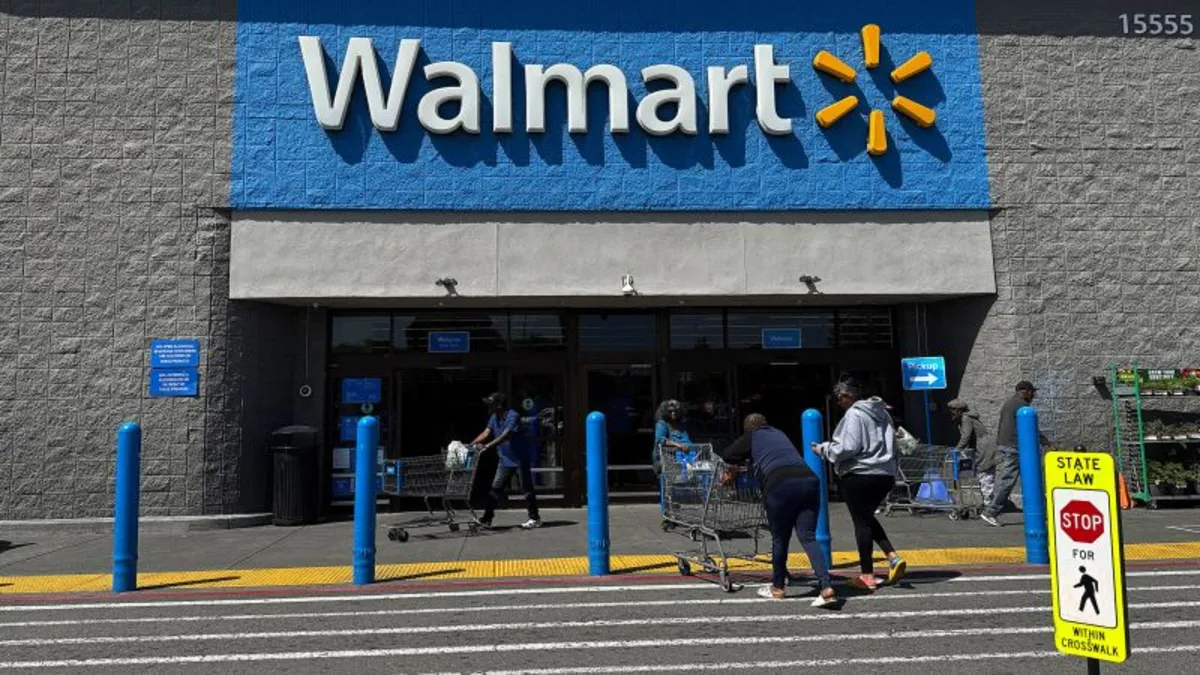
Walmart, recognized as the world’s largest retailer, has publicly acknowledged that it is not insulated from the repercussions of President Donald Trump’s tariffs. In light of the escalating global trade war, the company has announced plans to increase prices on certain items as it grapples with rising costs. Doug McMillon, Walmart's CEO, indicated during an analyst earnings call that while the company will strive to maintain low prices, the significant impact of tariffs makes it impossible to absorb all the additional costs, especially given the narrow retail margins they operate within.
Walmart's price hikes are set to commence later this month. John David Rainey, the company's finance chief, expressed concerns about the potential for consumers to encounter higher prices, particularly towards the end of this month and significantly more in June. This sentiment reflects a broader trend, as numerous companies have begun increasing prices to offset the financial burden imposed by the 10% tariffs on all products entering the United States, including elevated levies on goods from China.
Despite recent agreements between Washington and Beijing to reduce some tariffs, the United States continues to impose a 30% levy on many Chinese imports. These tariffs have already driven up prices on items such as mattresses, toys, and strollers. According to the Federal Reserve, tariffs have contributed to a 0.3% increase in overall prices this year.
Different companies are responding to the tariff situation in varying ways. Some are raising prices across their entire product range, while others are selectively increasing prices on specific items. Many businesses are opting to eliminate products that might result in significant price increases, thereby avoiding a scenario where they must either sell at prices that consumers find unacceptable or face competition from rivals offering lower prices. Analysts have noted that such price hikes may place Walmart in a politically sensitive situation with Trump, who has historically reacted strongly to companies raising prices.
Despite the challenges presented by tariffs and growing recession concerns, Walmart's business in the United States remains robust. The company reported a 4.5% increase in sales at stores open for at least a year last quarter, primarily driven by growth in its grocery sector. Furthermore, Walmart has successfully attracted higher-income households in recent months, a shift that has allowed its stock to rise by 2% in pre-market trading.
Walmart has strategically invested in enhancing its services and operations, enabling it to capture a larger share of the upper-income market. Historically serving lower and middle-income consumers, Walmart has adapted well to the rise of online shopping, establishing a competitive e-commerce platform to rival Amazon.
Analysts believe that Walmart's scale and extensive supplier network will allow the company to keep prices low for consumers, even as tariffs drive up costs. This strategic advantage positions Walmart favorably against its competitors in the months ahead. Bank of America analyst Robert Ohmes noted in a recent report that Walmart is “well positioned to manage tariffs” due to its strong supplier relationships and commitment to low pricing.
Interestingly, Walmart sources only about 15% of its overall products from China, which is significantly less than many of its competitors. Furthermore, approximately 60% of Walmart's offerings are groceries, the majority of which are sourced domestically, mitigating the impact of tariffs on the company.
The retail sector is grappling with substantial challenges due to tariffs, as a vast array of everyday products, including toys, baby gear, and footwear, are manufactured in China. Many companies are actively seeking to shift their production to avoid tariffs, while simultaneously raising consumer prices and reducing their product lines to lessen the financial impact.
In a recent meeting, the CEOs of major retailers including Walmart, Target, and Home Depot discussed the implications of tariffs with President Trump. Walmart CEO Doug McMillon, who has cultivated a friendly rapport with Trump through various meetings, candidly informed the President that the trade conflict with China has already begun to disrupt supply chains and would likely worsen as summer approaches. Walmart emphasized that the uncertainty surrounding trade policies complicates future planning, stating that “the lack of clarity in today’s dynamic operating environment makes the very near-term exceedingly difficult to forecast.”